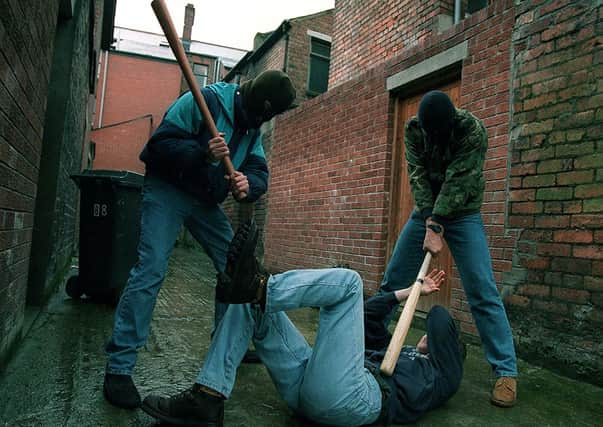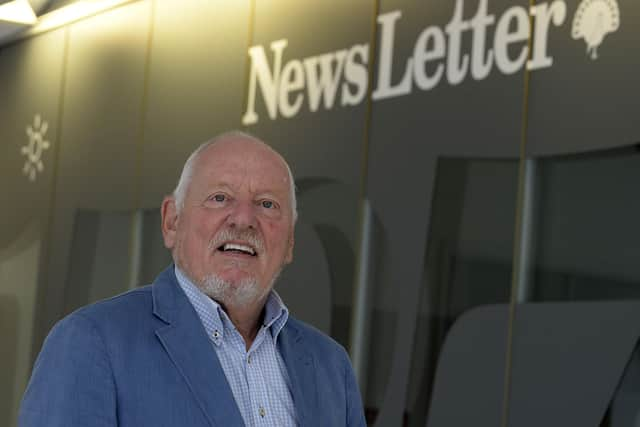Jeff Dudgeon: The biased UN seems blind to the scale of human rights abuses by terrorists


The UN experts were Mr Fabián Salvioli, Special Rapporteur on the promotion of truth, justice, reparation and guarantees of non-recurrence, and Mr Morris Tidball-Binz, Special Rapporteur on extrajudicial, summary or arbitrary executions.
They are both from Argentina.
The Malone House Group (MHG), an NGO recognised at the Council of Europe in Strasbourg, is concerned at the one-sided, anti UK state approach by these UN experts.
Advertisement
Hide AdAdvertisement
Hide Ad

They seem to have consulted no-one outside the usual narrow range of legal opinion and victims’ groups, and certainly not ourselves.
We are a group of academics, historians and lawyers based in Belfast which has a different point of view on legacy from that in our universities’ law departments, and their allies in human rights organisations like CAJ (Committee for the Administration of Justice).
The direction of travel of the UK government in its latest proposals in regard to the narrowing of lawfare against the security forces and the rewriting of history is welcome.
We do not regard them as “in flagrant violation of its international obligations”, as the experts assert, nor as “blanket impunity for the grave human rights violations committed during that period”.
Advertisement
Hide AdAdvertisement
Hide AdThe reality is that even those opposed to the proposals accept there will be next to no more prosecutions.
Indeed Jon Boutcher of Kenova said at Feile, also on 11 August, “It is important that everyone recognises that prosecutions will be rare”.
The NIO proposals do resemble a partial amnesty, something we have experienced for paramilitaries in a long series of politico-legal decisions over the two decades since the Belfast Agreement.
It started the process by effectively releasing all the grossest of our human rights violators — the paramilitary prisoners.
Advertisement
Hide AdAdvertisement
Hide AdI am not aware of the UN condemning that particular amnesty and have to ask the two experts why not?
The same applies to Michael Posner who worked for President Obama in his Bureau of Democracy, Human Rights and Labor and who in Forbes Magazine this month condemns the UK government proposals, threatening a range of US sanctions by President Biden.
Mr Posner is entirely blind to who is responsible for over 3,000 murders let alone the numerous government inquiries and apologies.
He writes in a breathtakingly partial approach: “The proposed amnesty would foreclose efforts to honestly acknowledge official misconduct during this period ... It obfuscates the essential truth that the British government has fiercely resisted offering public acknowledgement of the violations its agents committed during the ‘Troubles’ ... o prevent future abuses, the British government needs to come to terms with the serious abuses committed by its security forces during the ‘Troubles’.”
Advertisement
Hide AdAdvertisement
Hide AdThere are of course contested views of what are international obligations regarding amnesties.
They are certainly not subject to uniform condemnation in international law indeed they are often encouraged.
Similarly in relation to Article 2, the right to life, in the European Convention on Human Rights, views on interpretation differ considerably.
In relation to Articles 6 and 8, the right to a fair trial and the right to protection of one’s reputation, it is rare for any so-called human rights organisation, or the Police Ombudsman to take account of them.
Advertisement
Hide AdAdvertisement
Hide AdWhat ought to be of greatest concern to the UN is that since our peace process culminated in agreement in 1998 there have been 160 Troubles-related political murders, all extrajudicial and not one caused by the army or police.
Non-recurrence of such killing has therefore a considerable distance to go in Northern Ireland. We would welcome a UN intervention on that aspect.
This is a complex subject, as can be read in our submissions to the Council of Europe and its Committee of Ministers (on their website) in relation to Article 2 and the failings of the now abandoned Stormont House Agreement.
We have advised the UN experts, Messrs Salvioli and Tidball-Binz, of our willingness to discuss the legacy question and its legal aspects either in person or in a virtual meeting, and await their response.
Advertisement
Hide AdAdvertisement
Hide Ad• Jeffrey Dudgeon (Malone House Group Convenor) has been an advisor to the Ulster Unionist Party on legacy
Dr Cillian McGrattan: London’s latest plan to deal with legacy is chance to reset the imbalance against UK state forces
——— ———
A message from the Editor:
Advertisement
Hide AdAdvertisement
Hide AdThank you for reading this story on our website. While I have your attention, I also have an important request to make of you.
With the coronavirus lockdown having a major impact on many of our advertisers — and consequently the revenue we receive — we are more reliant than ever on you taking out a digital subscription.
Subscribe to newsletter.co.uk and enjoy unlimited access to the best Northern Ireland and UK news and information online and on our app. With a digital subscription, you can read more than 5 articles, see fewer ads, enjoy faster load times, and get access to exclusive newsletters and content. Visit https://www.newsletter.co.uk/subscriptions now to sign up.
Our journalism costs money and we rely on advertising, print and digital revenues to help to support them. By supporting us, we are able to support you in providing trusted, fact-checked content for this website.
Ben Lowry
Acting Editor